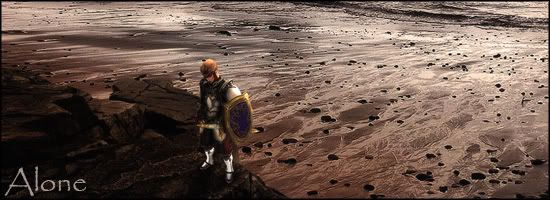Source
Just wondering what people's thoughts are on this issue or if they've even heard about it from their regional media. Does any among you feel strongly about the slaughtering of these intelligent, majestic, and endangered creatures enough to boycott Japanese products as sign of protest for example?
The UK, Australia and New Zealand have sharply criticised Japan for the launch of its largest ever whaling expedition.
The hunting fleet has instructions to kill up to 1,000 whales. Humpback whales will be hunted for the first time in over 40 years.
Japan says the hunt is for research purposes and that numbers are too small to have a major impact on populations.
New Zealand PM Helen Clark said this claim was "deception" and that the whalers should not have left port.
The Japanese whaling fleet set sail on its five-month mission from the southern port of Shimonoseki on Sunday.
As well as up to 900 minke whales and 50 fin whales, it will kill up to 50 humpback whales for the first time since a moratorium was introduced in 1963.
The species had been hunted almost to extinction before the ban.
'Guise and deception'
Mrs Clark told local media it would be better if the whaling fleet had stayed at home
She criticised "the guise, the deception, the claim that it is scientific whaling when they want to take 1,000 whales".
Mrs Clark added that it would be difficult for New Zealand to offer help if any of the ships got into trouble at sea.
The Australian government has also expressed disapproval, saying it is "deeply disappointed" by the launch of the expedition.
Foreign Minister Alexander Downer said there was no evidence of Japan producing any data from its research.
"Scientific whaling is a phrase they use to camouflage the fact that they still indulge in whaling," he said.
He said he had asked to see the Japanese ambassador but he ruled out deploying military defence forces, saying that Australia would not go to war with Japan over the issue.
His comments followed a suggestion by the opposition Labor party that they would send the Australian navy to track the fleet if they were elected in the imminent elections.
Diplomatic action
Britain has said it is considering high-level diplomatic action to protest against the hunt.
A spokeswoman from the Department for Environment, Food and Rural Affairs (Defra) said the government believes the humpback hunt is unnecessary and that it has "serious reservations as to its scientific value".
"We are committed to maintaining the moratorium on commercial whaling and will oppose all efforts by Japan to undermine this with so-called scientific whaling," she said.
The hunt has drawn strong opposition from environmental and conservation groups.
Greenpeace is hoping to locate the fleet in order to shoot video footage, but claims the ships have turned off their identification equipment, making them hard to find.
The more radical Sea Shepherd group said its activists will attempt to intercept the ships once the hunt is under way.
The expedition is scheduled to run until mid-April 2008.
The hunting fleet has instructions to kill up to 1,000 whales. Humpback whales will be hunted for the first time in over 40 years.
Japan says the hunt is for research purposes and that numbers are too small to have a major impact on populations.
New Zealand PM Helen Clark said this claim was "deception" and that the whalers should not have left port.
The Japanese whaling fleet set sail on its five-month mission from the southern port of Shimonoseki on Sunday.
As well as up to 900 minke whales and 50 fin whales, it will kill up to 50 humpback whales for the first time since a moratorium was introduced in 1963.
The species had been hunted almost to extinction before the ban.
'Guise and deception'
Mrs Clark told local media it would be better if the whaling fleet had stayed at home
She criticised "the guise, the deception, the claim that it is scientific whaling when they want to take 1,000 whales".
Mrs Clark added that it would be difficult for New Zealand to offer help if any of the ships got into trouble at sea.
The Australian government has also expressed disapproval, saying it is "deeply disappointed" by the launch of the expedition.
Foreign Minister Alexander Downer said there was no evidence of Japan producing any data from its research.
"Scientific whaling is a phrase they use to camouflage the fact that they still indulge in whaling," he said.
He said he had asked to see the Japanese ambassador but he ruled out deploying military defence forces, saying that Australia would not go to war with Japan over the issue.
His comments followed a suggestion by the opposition Labor party that they would send the Australian navy to track the fleet if they were elected in the imminent elections.
Diplomatic action
Britain has said it is considering high-level diplomatic action to protest against the hunt.
A spokeswoman from the Department for Environment, Food and Rural Affairs (Defra) said the government believes the humpback hunt is unnecessary and that it has "serious reservations as to its scientific value".
"We are committed to maintaining the moratorium on commercial whaling and will oppose all efforts by Japan to undermine this with so-called scientific whaling," she said.
The hunt has drawn strong opposition from environmental and conservation groups.
Greenpeace is hoping to locate the fleet in order to shoot video footage, but claims the ships have turned off their identification equipment, making them hard to find.
The more radical Sea Shepherd group said its activists will attempt to intercept the ships once the hunt is under way.
The expedition is scheduled to run until mid-April 2008.







Comment